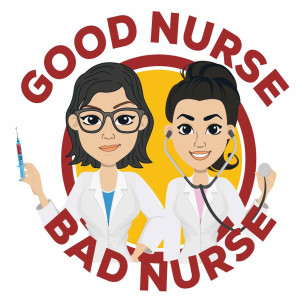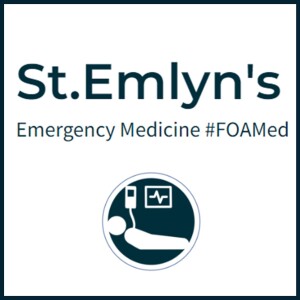The Importance and Practice of Debriefing in Emergency and Critical Care
Debriefing is a crucial process in healthcare settings, particularly in emergency and critical care units. It involves structured discussions following critical events to help teams learn from their experiences and support each other's psychological well-being. This process is not just about operational reflection but also about addressing the emotional impact of challenging situations on healthcare professionals.
Understanding DebriefingDebriefing can take two primary forms: hot debriefs and formal debriefs. Hot debriefs occur immediately after an event and focus on operational aspects, such as what happened, what went well, and what could be improved. They are concise and do not delve into the psychological aspects of the incident. These debriefs are valuable for capturing immediate lessons and determining if further, more comprehensive discussions are necessary.
Formal debriefs, on the other hand, are conducted five to seven days post-event. This delay allows participants to process initial emotions, making it a more suitable time for in-depth discussions. Formal debriefs cover both operational details and psychological reactions, providing a safe space for staff to express their feelings and thoughts. They are essential for long-term learning and emotional healing, ensuring that the team can move forward positively.
Timing and SettingThe timing of debriefing is critical. While hot debriefs capture immediate reflections, formal debriefs should not be rushed. Conducting them too soon can be ineffective, as participants might still be too emotionally charged to engage constructively. In our hospital, formal debriefs are usually organized when an event causes significant distress among the staff, whether due to a clinical situation, a tragic incident involving a colleague, or a complex ethical dilemma.
The setting for a debrief should be carefully chosen to ensure a conducive environment for open communication. We often use teaching rooms, which are formal enough to maintain the seriousness of the discussion but comfortable and private enough to encourage honesty and confidentiality.
Facilitators and StructureSelecting the right facilitators is crucial for a successful debrief. Typically, a social worker, like Liz, and a senior medical consultant co-facilitate. The consultant provides a comprehensive overview of the clinical aspects, while the social worker manages the psychological and emotional discussions. This balance ensures that all relevant facets of the event are covered.
A formal debrief generally follows a structured format:
-
Introduction and Ground Rules: The facilitator sets the stage by explaining the purpose of the debrief and establishing ground rules, such as maintaining confidentiality and focusing on constructive feedback.
-
Narrative of the Event: A detailed recount of the incident is provided, clarifying what happened and why certain decisions were made. This helps participants understand the context and avoid misunderstandings.
-
Operational Discussion: The team discusses the operational aspects, identifying what was done well and what could be improved. This is critical for learning and improving future responses.
-
Emotional and Psychological Impact: Participants share their emotional reactions, providing a space for acknowledging the psychological effects of the event. This aspect of debriefing is vital for team support and individual well-being.
-
Closing and Follow-Up: The debrief concludes with a summary and any agreed-upon actions. Facilitators also provide information on additional support resources, if necessary.
Debriefing can be challenging, especially in navigating sensitive topics or when there are conflicting opinions. It's essential to create a safe space where all participants feel comfortable sharing. Facilitators must manage the discussion to ensure that dominant personalities do not overshadow quieter voices, encouraging everyone to contribute.
In some cases, separate debriefs for different groups involved in the event—such as pre-hospital staff, nurses, and doctors—may be necessary. This approach ensures that discussions are relevant to each group's experiences and prevents unnecessary exposure to distressing details that may not be directly applicable.
Broader Implications and BenefitsDebriefing should not be limited to negative or critical incidents. Regularly debriefing both positive and challenging events fosters a culture of continuous improvement and support. It helps normalize the practice, making it an integral part of the workplace rather than an extraordinary event.
It's important to recognize that not all staff may want to participate in debriefings, and that’s acceptable. Debriefing should always be voluntary, with alternative support mechanisms available for those who need them.
The long-term benefits of debriefing are substantial. It helps prevent burnout by providing a space for staff to process their experiences, supports continuous learning, and improves patient care outcomes. A well-implemented debriefing process can enhance team cohesion, reduce staff turnover, and foster a positive workplace culture.
ConclusionDebriefing is a vital component of healthcare practice in emergency and critical care settings. It provides a structured approach to reflect on critical events, offering both operational and psychological support to healthcare teams. While it requires time and effort, the benefits for staff well-being and patient care are invaluable.
We encourage healthcare professionals to integrate regular debriefing into their practices, not just for critical incidents but as a routine part of their work. This approach helps build a resilient and supportive workplace culture, where staff feel valued and heard. Sharing experiences and learning from each other strengthens the team and ultimately leads to better care for patients.
We invite you to share your experiences with debriefing in your hospital. What strategies have worked well? What challenges have you encountered? Connect with us through the St. Emlyn's blog or Twitter, and let's continue the conversation about improving our practices and supporting each other in this challenging yet rewarding field of healthcare. Stay tuned for more insights from St. Emlyn's as we explore the complexities of working in emergency and critical care. Until next time, take care and keep supporting each other.
More Episodes
Ep 253 - Highlights from the London Trauma Conference 2024
 2024-12-11
2024-12-11
 659
659
Ep 252 - ECMO in Trauma with Chris Bishop at Tactical Trauma 24
 2024-12-04
2024-12-04
 1.1k
1.1k
Ep 251 - Bad Behaviours in Teams with Liz Crowe at Tactical Trauma 24
 2024-11-27
2024-11-27
 1.3k
1.3k
Ep 250 - Monthly Round Up September 2024 - Patient Experience in the ED, Dirty Adrenaline, and More!
 2024-11-20
2024-11-20
 1.3k
1.3k
Ep 249 - Care in the Hot Zone with Claire Park at Tactical Trauma 2024
 2024-11-14
2024-11-14
 1.4k
1.4k
Ep 248 - Prehospital eCPR with Alice Hutin at Tactical Trauma 2024
 2024-11-06
2024-11-06
 1.4k
1.4k
Ep 247 - August 2024 Round-Up - Goldilocks Moments, Nasal Analgesia, and Public Health in the ED
 2024-10-30
2024-10-30
 1.3k
1.3k
Ep 246 - Simulation for Elite Team Performance with Andrew Petrosoniak at Tactical Trauma 2024
 2024-10-23
2024-10-23
 1.5k
1.5k
Ep 245 - Leading through failure with Kevin Cyr at Tactical Trauma 2024
 2024-10-18
2024-10-18
 1.9k
1.9k
Ep 244 - July 2024 Monthly Update - Chest Pain, REBOA, Lidocaine patches and lots of paediatric emergency medicine
 2024-10-06
2024-10-06
 1.5k
1.5k
Ep 243 - The Subarachnoid Haemorrhage in Emergency Department (SHED) Study
 2024-09-26
2024-09-26
 1.8k
1.8k
Ep 242 - Prehospital Neuroprotection with Ed Langford at PREMIER 2024
 2024-08-21
2024-08-21
 1.6k
1.6k
Ep 241 - Paediatric Palliative Care with Tim Warlow at PREMIER 2024
 2024-08-14
2024-08-14
 1.2k
1.2k
Ep 240 - June 2024 Monthly Round Up - Nebulised Ketamine, Risky Intubations, Better Presentations, DSED, Preoxygenation and more
 2024-08-07
2024-08-07
 1.8k
1.8k
Ep 239 - Button Battery Ingestion with Francesca Steadman at PREMIER 2024
 2024-07-31
2024-07-31
 1.4k
1.4k
Ep 238 - Positive and Negative Predictive Values: Critical Appraisal Nugget
 2024-07-24
2024-07-24
 1.3k
1.3k
Ep 237 - Hybrid Closed Loop Insulin Pumps with Nicola Trevelyan at PREMIER 2024
 2024-07-17
2024-07-17
 1.3k
1.3k
Ep 236 - Occlusive Myocardial Infarction, ECGs and AI with Steve Smith
 2024-07-10
2024-07-10
 1.9k
1.9k
Ep 235 - Eating Disorders in the Emergency Department with Anna Kyle at PREMIER 2024
 2024-07-02
2024-07-02
 1.4k
1.4k
Ep 234 - May 2024 Monthly Round Up - RCEM conference highlights, being EPIC and more
 2024-06-27
2024-06-27
 1.4k
1.4k
Create your
podcast in
minutes
- Full-featured podcast site
- Unlimited storage and bandwidth
- Comprehensive podcast stats
- Distribute to Apple Podcasts, Spotify, and more
- Make money with your podcast
It is Free
You may also like

Good Nurse Bad Nurse


The Relaxback UK Show


On Call With Dr. Anselm Anyoha


The Dr. Hyman Show


The Peter Attia Drive

- Privacy Policy
- Cookie Policy
- Terms of Use
- Consent Preferences
- Copyright © 2015-2024 Podbean.com



 iOS
iOS Android
Android